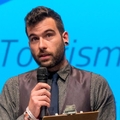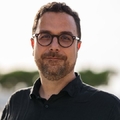Presentation
Achieving Circularity in Cities through Environmental Sustainability of Sports (ACCESS) aimed to enhance sustainability and circularity in cities and regions by increasing sport organisations’ capacities and knowledge on environmental matters, improving their governance patterns, and making sport events more sustainable.
Four pilot sport organisations and their respective stadiums underwent an extensive screening process, which included interviews, audits, and site visits, to assess their existing environmental sustainability principles and overall environmental performance. After comparing their strategies and policies with those of their respective cities, an action plan was drawn up to enable these sport organisations to contribute to the local and regional transition towards a circular economy.
This approach allowed the four participating organisations – the Gaelic Athletic Association (GAA), the Danish Football Association (DBU), FC Porto (FCP), and the Football Association of Wales (FAW) – to strengthen their relationships with local and regional authorities and opened the door to broad cooperation across a range of areas, including mobility, waste, energy, governance, procurement, and more. Ultimately, they became reference organisations that other sport entities in their respective countries can look to in order to replicate and scale the ACCESS methodology.
The project was financed by the Erasmus+ Sports Programme of the European Union and ran for three years, from June 2022 to June 2025.
ACCESS focused on narrowing the gap between the existing environmental performance of sport clubs and associations and the strategies and targets of the cities and regions in which they were based and operated. The key goal was to activate collaboration between urban stakeholders and sport organisations in order to progress towards circular cities.
Thanks to previous projects ACR+ had been involved in, a lack of coherence between stadiums and cities regarding environmental policies had been observed. While sport organisations and stadiums were putting in efforts to improve their environmental management practices, these actions were often not aligned with the goals and strategies of local authorities, resulting in lost potential added value. ACCESS sought to encourage coordinated action on key policy areas to achieve more comprehensive results across all aspects of sport events.
Supported by two technical partners – ACR+ (as project coordinator) and Sant’Anna School of Advanced Studies – the GAA, DBU, FCP, and FAW went through this process, which resulted in improved cooperation with their local and regional authorities and concrete steps towards enhancing their environmental performance in both operational and governance aspects.
Activities
Due to its rich experience and expertise in the field of sustainability in sports, ACR+ was the project leader and oversaw project management, including cooperation between project partners, quality assurance, budget, and time management. ACR+ was also responsible for activities related to communication and dissemination. It worked closely with Scuola Superiore Sant'Anna to guide the sport clubs through their transition processes.
ACR+ supported DBU in the development and implementation of Circular City Committees, which aimed to create synergies between local stakeholders and to disseminate the project’s results.
The project itself went through several phases, starting with the assessment phase, which fed into the training and education phase, aiming to build the capacities of participating sport organisations. These organisations then applied their newly acquired knowledge by running their local or regional Circular City Committees, which were expected to result in comprehensive and achievable action plans to be implemented before the end of the project.
Once the partners completed these phases, they began to act as reference organisations in their respective countries, enabling the replication and multiplication of the project’s activities.
Partners
- Dansk Boldspil-Union / DBU (DK)
- FC Porto / FCP (PT)
- Football Association of Wales / FAW (UK)
- Gaelic Athletic Association / GAA (IE)
- Sant’Anna School of Advanced Studies / SSSA* (IT)
* ACR+ member






